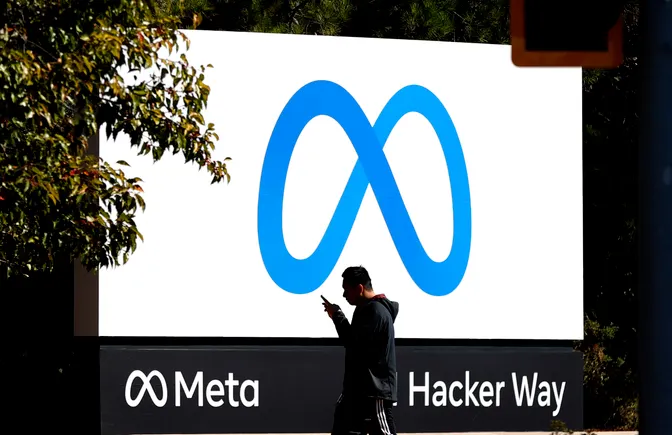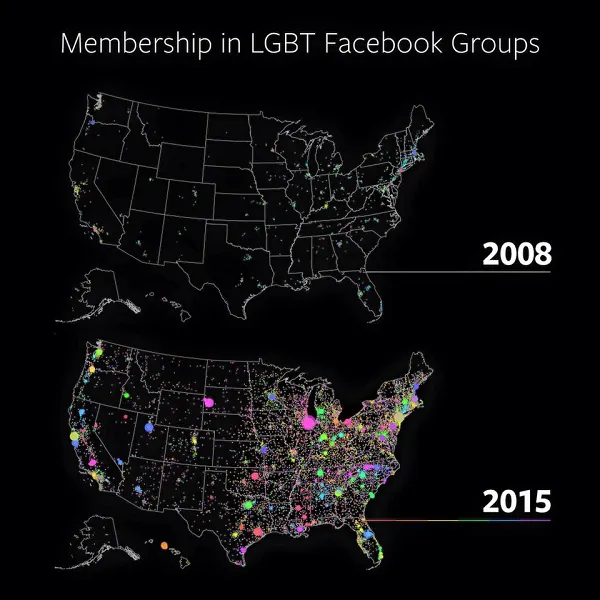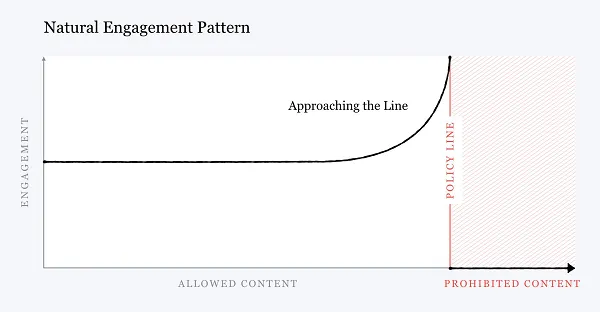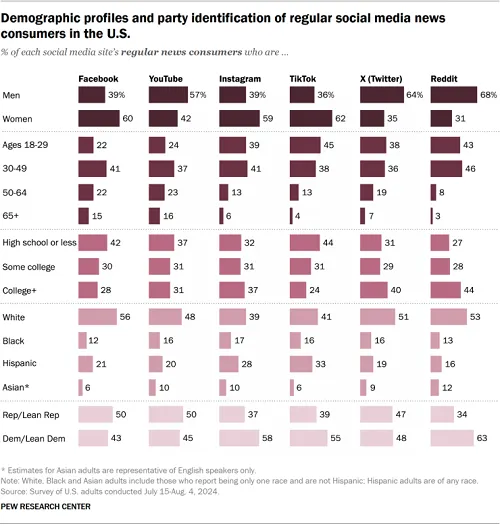# Every part You Must Know About Meta’s Change in Content material Guidelines

Meta sparked the primary main social media controversy of 2025 final week, when it introduced that it could be eliminating fact-checking, and loosening its guidelines round what folks can say in its apps.
Which many view as an try to appease incoming U.S. President Donald Trump, who’s been extremely important of Meta prior to now, however why precisely are Zuck and Co. doing this, and can it really be a constructive or a unfavorable for Fb and Instagram (and Threads) customers?
Right here’s a have a look at all the important thing questions round Meta’s obvious backflip, and why Zuck and Co. have chosen to take issues in a brand new path at this stage.
What precisely is altering?
Meta’s updating its guidelines round what folks will probably be allowed to say of their posts, whereas it’s additionally eliminating its third-party fact-checking program, in favor of an X-style, crowd-sourced Group Notes system. It’s additionally bringing extra content material deemed “political” again to folks’s feeds, after steadily decreasing the presence of such over the previous 4 years.
On the primary aspect, Meta is particularly transferring to permit extra sorts of speech on subjects “which are ceaselessly topic to political debate”, starting with dialogue associated to immigration and gender id.
The Intercept has considered examples of Meta’s up to date moderation tips, that are at the moment being circulated to Meta employees, and it’s shared a number of the notes supplied by Meta regarding characterizations and feedback that had been towards its guidelines, however will now be acceptable.
Examples of now acceptable feedback embody:
“Immigrants are grubby, filthy items of shit.”
“Gays are freaks.”
“Trans persons are mentally unwell”
All of those are actually wonderful, and won’t be penalized in the identical method (if in any respect), which is able to open the door for extra hate speech in Meta’s apps, whereas expanded characterizations of immigrants and the LGBTQ+ group may even now get extra leeway.
The wording of Meta’s replace additionally means that additional adjustments could possibly be coming, primarily based on no matter is topic to political debate at any given time.
The elimination of fact-checkers, in the meantime, will reduce Meta’s defenses towards the unfold of misinformation. primarily based on Meta’s personal proof (as mentioned beneath), whereas the re-introduction of political content material might see broader publicity to divisive debate throughout Meta’s apps.
Why do away with fact-checkers?
In line with Zuckerberg, the fact-checking companions that Meta has used are inherently politically biased.
As Zuckerberg defined to Joe Rogan final week:
“A few of the folks whose job is to do fact-checking, loads of their business is targeted on political fact-checking, in order that they’re sort of veered in that path. We stored on attempting to mainly get it to be what we had initially supposed, which isn’t to evaluate folks’s opinions, however to offer a layer to assist fact-check a number of the stuff that appears probably the most excessive. However it was by no means accepted by folks broadly. I believe folks simply felt just like the fact-checkers had been too biased, and never essentially even a lot in what they dominated, however loads of the time it was simply what kinds of issues they selected to even go and fact-check within the first place.”
So, there are a few key tells right here.
First off, Zuckerberg defined this in a three-hour interview with Joe Rogan, who has long-held right-wing views. In fact, eliminating fact-checkers additionally aligns with the right-wing view that freedom of speech ought to be absolute, and that social platforms shouldn’t play any function in any respect in dictating what can and can’t be shared of their apps. However the truth that Zuckerberg selected to announce these updates on Rogan’s podcast, whereas additionally sending his chief public coverage to do the identical on Fox Information is related.
The message is obvious: Meta is making these adjustments to appease right-wing supporters, and align with the views of incoming President Donald Trump. There will be no different strategy to view this, and that’s additionally a related facet in figuring out fact-checkers as politically compromised.
However is it true? Are Meta’s fact-checking companions politically biased of their efforts?
It’s inconceivable to know with out assessing the complete scope of Meta’s fact-checking program, however given the statistical context that we do have, it’s onerous to see how eradicating fact-checks solely goes to be useful total.
Again in 2018, Meta famous that when fact-checkers charge an article as false, its future views are lowered by over 80% on common, whereas varied educational research have proven that fact-checks considerably scale back false beliefs, in addition to the quantity of redistribution fact-checked posts get.
And whenever you additionally contemplate that misinformation sees six occasions extra engagement than factual information on Fb particularly, that looks as if a major aspect that you simply’re taking away.
The following query, then, is whether or not Group Notes, which have been successful in some methods, and a failure in others on X, can substitute the responsiveness and efficiency of third-party fact-checks.
The main flaw in Group Notes stays its reliance on political consensus to show a word (i.e. Notes contributors of opposing political viewpoints must agree {that a} word is critical), in an effort to guarantee neutrality wherein notes are displayed.
Unbiased evaluation reveals that on most of the most divisive points, such settlement won’t ever come, and thus, nearly all of notes on these important factors of order are by no means displayed.
That would imply that political misinformation, which is more likely to acquire extra momentum below Trump, could possibly be unfold lots additional in Meta’s apps than it ever could possibly be on X.
Zuckerberg says that the adjustments are about getting the corporate again to its unique mission, which is to make all people extra related, however has that all the time been Meta’s intention?
A part of Zuckerberg’s justification for revising Meta’s moderation guidelines is, as Zuckerberg describes, “getting again to our unique mission of giving folks the ability to share and make the world extra open and related.”
Which isn’t precisely what the corporate was based upon, nor its unique focus, however it has been part of Meta’s said strategy for over a decade, in technical phrases.
Again in 2014, Zuckerberg introduced that Meta’s mission assertion would now be “Join the World”, switching from its first company motto of “Construct Quick and Break Issues”. Earlier than that, no one had any actual thought of how vital, or influential, Fb/Meta would develop into, with the corporate IPO being launched in 2012.
So whereas it hasn’t been the central focus of the corporate endlessly, it has been a key intention, even when it was arguably being utilized in a distinct context in these early years.
In 2014, Zuck and Co. had set their sights on branching into each nation, and constructing new techniques of connectivity to hyperlink extra folks into Fb’s ever-growing userbase. So, sure, the intention was to attach folks, however seemingly this was in a extra literal sense, of connecting extra folks to Fb.
In different phrases, it’s considerably disingenuous of Zuckerberg to counsel that connecting all folks of all political viewpoints has all the time been his intention, however he can lean on these previous mission statements to counsel that this was a central objective.
However actually, Zuckerberg’s important intention, now and all the time, is enterprise development, and maximizing Meta’s capability to dominate the competitors.
While you view these newest strikes via that prism, not the narrative that Zuckerberg would like, the introduced adjustments make extra sense.
Doesn’t this go towards all the pieces that Meta’s been telling us for the final ten years?
Sort of.
Wanting again over Zuckerberg’s bulletins on moderation and political speech, Meta has made some vital commitments that will seemingly run counter to this new strategy.
In 2015, after the U.S. Supreme Courtroom legalized same-sex marriage, Zuckerberg took the chance to have fun the function that Fb had performed in enhancing LGBT connection.

Easing the corporate’s guidelines round hate speech on this context does appear contradictory, significantly with reference to implementing particular exclusions for commentary that could possibly be used to assault members of the LGBTQ+ group.
In 2017, after the mass capturing in Charlottesville, Zuckerberg dedicated to creating Fb a spot “the place everybody can really feel secure”. You would argue that these new guidelines additionally go towards this.
In 2018, following the controversy of the 2016 U.S. election, and the suggestion that Russian bot farms might have interfered with democratic course of, Zuckerberg outlined a brand new strategy, whereas additionally explaining how Meta had “essentially altered our DNA to focus extra on stopping hurt in all our companies.”
Meta’s huge focus was misinformation, and limiting the distribution of content material that comes near breaking the platform’s guidelines, however doesn’t fairly achieve this.
In line with Zuckerberg, this can be a key downside, as a result of the nearer content material will get to breaking the foundations, the extra engagement it sees.

Zuckerberg’s reply to this was to concentrate on coaching its AI techniques to detect borderline content material, in order that Meta might proactively scale back its distribution. So it was much less in regards to the elimination or limiting of such, and extra about addressing the motivation for posting, because the engagement wouldn’t be as excessive.
Additionally essential, Zuckerberg additionally shared this word:
“Up to now yr, we’ve prioritized figuring out folks and content material associated to spreading hate in international locations with crises like Myanmar. We had been too sluggish to get began right here, however within the third quarter of 2018, we proactively recognized about 63% of the hate speech we eliminated in Myanmar, up from simply 13% within the final quarter of 2017.”
The function that Fb performed in political unrest in Myanmar has been well-documented, and Meta has labored onerous within the years since to enhance its techniques to restrict political polarization and misinformation, stemming largely from this incident.
The relevance of such in right this moment’s context is that the U.S. shouldn’t be the one nation that makes use of Meta’s apps, and these rule adjustments might additionally result in hurt in different areas.
However the backside line is that hate speech, and the unfold of misinformation, was a key focus for Meta in 2018, with Zuckerberg additionally noting that:
“We’re additionally making progress on hate speech, now with 52% recognized proactively. This work would require additional advances in know-how in addition to hiring extra language consultants to get to the degrees we’d like.”
Once more, Meta’s strategy has been about security, and guaranteeing customers really feel secure in utilizing its apps.
This strategy appears to have been largely upheld by all of Meta’s bulletins and coverage shifts over the previous 6 years, together with its resolution to droop Donald Trump’s account within the wake of the Capitol Riots in 2021, in addition to its transfer away from political content material solely, as a way to fight division and angst, which has been impacting Fb utilization.
Certainly, the message from Meta extra not too long ago has been that politics is just unhealthy for enterprise, whereas it additionally doesn’t want political dialogue anymore both method, as a result of Fb and Instagram engagement has been growing primarily based on AI-recommended content material, primarily Reels, which now make up greater than 50% of the content material that customers see of their feeds.
So no extra negotiating with information publishers over rights offers, no extra selling politically-aligned posts that may spark anger, and no must get Zuckerberg himself entangled in congressional explorations of the function that social apps play in social division.
Meta gave the impression to be transferring on, and was eager to distance itself from such solely.
However then final yr, Meta began to vary its tune, with Zuckerberg penning a letter to Congress wherein he expressed remorse over his firm’s resolution to censor COVID vaccine misinformation, on the behest of Biden administration officers, and the mistaken blocking of a New York Put up story about Hunter Biden’s laptop computer.
At that stage, Trump appeared to be gaining within the polls, on the way in which to his subsequent re-election. That could possibly be coincidental timing, however it did appear to be Zuckerberg might have been setting the desk for final week’s switch-up primarily based on the ballot projections.
Additionally of word, Trump had threatened to jail Zuckerberg for all times if he was ever re-elected, on account of what he considered as political overreach by Fb in suspending his account.
Which leads into the following question:
What does Meta (and Zuckerberg) stand to achieve from siding with President Trump?
Rather a lot. Listed here are just some methods wherein the U.S. Authorities can play a component in bettering Meta’s enterprise alternatives:
- Overseas tariffs – Trump has vowed to extend tariffs on international imports to the U.S., together with a 60% bounce in tariffs on Chinese language imports. Meta is reliant on Chinese language elements to construct its VR and AR headsets, and not too long ago shifted parts of the manufacturing of its AR glasses to China. As such, any tariffs on Chinese language imports might find yourself costing Meta billions of {dollars}, whereas additionally decreasing its capability to make its AR and VR gadgets inexpensive sufficient to safe mass adoption.
- EU regulation – Meta has been fined greater than $2.5 billion by European regulators over the previous two years alone, primarily based on varied violations of more and more stringent EU shopper safety codes regarding on-line entities. Having the U.S. Authorities in its nook might scale back the EU Fee’s propensity to resort to fines, on account of fears of retaliatory penalties in U.S. commerce.
- AI regulation – Meta additionally wants U.S. regulators to remain out of its enterprise on AI development, in an effort to be certain that it might push forward with its varied AI tasks. Many have raised considerations in regards to the impacts that AI might have, and the necessity for extra stringent safety and regulation to restrict potential hurt. Meta doesn’t need that, so it’ll must lean on its Washington connections to oppose such. Additionally, with Trump’s new finest good friend Elon Musk pushing his personal AI tasks, there’s a threat that new guidelines could possibly be carried out that penalize Meta in favor of xAI. A greater relationship with Trump might mitigate this.
- Preserving TikTok out of the U.S. – Who advantages most from TikTok being banned within the U.S.? With TikTok gone, extra folks will flip to Instagram and Fb, so Meta clearly wins out if the Trump Administration decides towards pushing to maintain the app obtainable to People.
- Preserving the FTC off Meta’s again – Lastly, Meta has come below fixed scrutiny from the FTC, which continues to be threatening to drive the corporate to divest each Instagram and WhatsApp to scale back its market dominance. Much less time spent battling the FTC means extra time, and cash, to put money into its technological improvement, whereas additionally decreasing the chance of impacting Meta’s backside line.
So clearly, Zuck and Co. have lots to achieve from being in partnership with Trump, and nothing to achieve from sustaining opposition on ideological grounds.
Zuckerberg has mentioned that Meta’s coverage revision is primarily based on the political temper of the folks, however “folks” on this context is actually solely the folks in cost, whom Zuckerberg is aware of he wants on his aspect to maximise Meta’s alternatives.
So what’s really going to occur because of this shift?
Right here’s the factor: The impression of this modification could possibly be considerably much less on Fb and IG this time round as a result of no one posts to Fb or Instagram anymore both method.
That’s to not dilute the duty that Zuck and Co. have, as any platform that’s utilized by 3 billion folks goes to play a task in shaping opinions and political discourse. However the principle distinction attributable to Meta’s AI advice shift is that persons are counting on Meta’s apps much less and fewer for political content material, or for sharing their private opinions.
Again in 2022, Instagram chief Adam Mosseri famous that “friends submit much more to tales and ship much more DMs than they submit to Feed”. Fb has seen the identical, with the inflow of really useful Reels now shifting the platform away from its “social” roots, and extra in direction of leisure. Which is best for driving engagement, and maintaining folks within the app longer (to allow them to view extra adverts). However in impact, it additionally signifies that Meta now has far much less affect than it had again in 2016, when it was first recognized as a professional political drive.
So whereas Meta goes to point out folks extra political content material, in the event that they wish to see it (you’ll nonetheless be capable of opt-out if you happen to select), I’m unsure that the impression of such will probably be as vital whilst X this time round. Which can be optimistic, however once more, folks simply aren’t posting to Fb as a lot as they as soon as had been, whereas personal teams have all the time had sure exemptions from scrutiny, on account of folks merely not with the ability to see and report them.
Now, extra engagement occurs inside messaging teams, and that also looks as if probably the most viable vector for the sharing of political info. And the identical as personal FB teams, that received’t be detected, so Meta’s impression on this respect is probably not as vital because it may appear.
Although there will probably be impacts, and sure teams are going to really feel the brunt of those adjustments. The amplification of misinformation can be a significant concern, however perhaps, Meta’s algorithms merely received’t permit for a similar degree of unfold of such because it did prior to now.
It doesn’t appear to be Trump goes to return to Fb both method, on account of his contractual ties with Reality Social. And along with his right-hand man Elon additionally tied to X, I assume these would be the main propaganda focus of Trump’s supporters.
So perhaps, Meta feels safer in making this modification as a result of it’s not in the identical place because it as soon as was for information distribution, and perhaps, the impression of those adjustments received’t be the identical both.
We’ll have to attend and see, however perhaps, Meta has really set the groundwork to reduce such a change in strategy, enabling Zuckerberg to enchantment to Trump and his supporters, whereas additionally decreasing the precise results both method.
I don’t suppose that was by design, essentially, as once more, Zuckerberg’s choices are primarily based on successful for his enterprise, not on social harms. However perhaps, this received’t result in Fb turning into an all-out misinformation bullhorn, as X now’s.
The one proviso to that is that Fb continues to be utilized by many middle-aged folks (30-49), and can be the place this cohort will get a major quantity of their information enter:

This group can be extra more likely to prove to vote within the U.S., so Fb’s affect continues to be notable on this respect.
Total, the adjustments appear to be a unfavorable for social discourse, and do appear to be aligned with the whims of the incoming president, versus what may be for the higher good. We received’t know until we see the complete impression of the unfold of misinformation or hurt in consequence, but in addition, we solely know these impacts on reflection.
However the backside line, primarily based on the proof offered, is that Zuck and Co. are eager to win favor for his or her enterprise, over any potential impacts. And when Zuckerberg adjustments his tune once more, when the following president is voted in, we’ll undergo all of this as soon as extra.
Andrew Hutchinson
![#
Assessing the Electrical energy Necessities of AI Growth [Infographic] #
Assessing the Electrical energy Necessities of AI Growth [Infographic]](https://www.socialmediatoday.com/imgproxy/Lf-VVedNvW6ZGudD91zExJ1kiEiPGZjW-qiJf7QXpi4/g:ce/rs:fit:770:435/bG9jYWw6Ly8vZGl2ZWltYWdlL21pY3Jvc29mdF9wb3dlcjIucG5n.webp)

![#
Find out how to Create Content material Pillars [Infographic] #
Find out how to Create Content material Pillars [Infographic]](https://www.socialmediatoday.com/imgproxy/sAWIUhem7NB7iGGa_By1w275SkvBYxQN-vKgNH_D3SM/g:ce/rs:fill:770:435:0/bG9jYWw6Ly8vZGl2ZWltYWdlL2NvbnRlbnRfcGlsbGFyc19pbmZvMi5wbmc.png)
![#
22 Instagram Publish Concepts for Extra Likes, Feedback, Shares and Saves [Infographic] #
22 Instagram Publish Concepts for Extra Likes, Feedback, Shares and Saves [Infographic]](https://imgproxy.divecdn.com/m3UT9NO3PZydi-0weidZtsT2HEj-NnbbHIMrL_4F1m8/g:ce/rs:fit:770:435/Z3M6Ly9kaXZlc2l0ZS1zdG9yYWdlL2RpdmVpbWFnZS9pZ19wb3N0X3RpcHMyLnBuZw==.webp)
